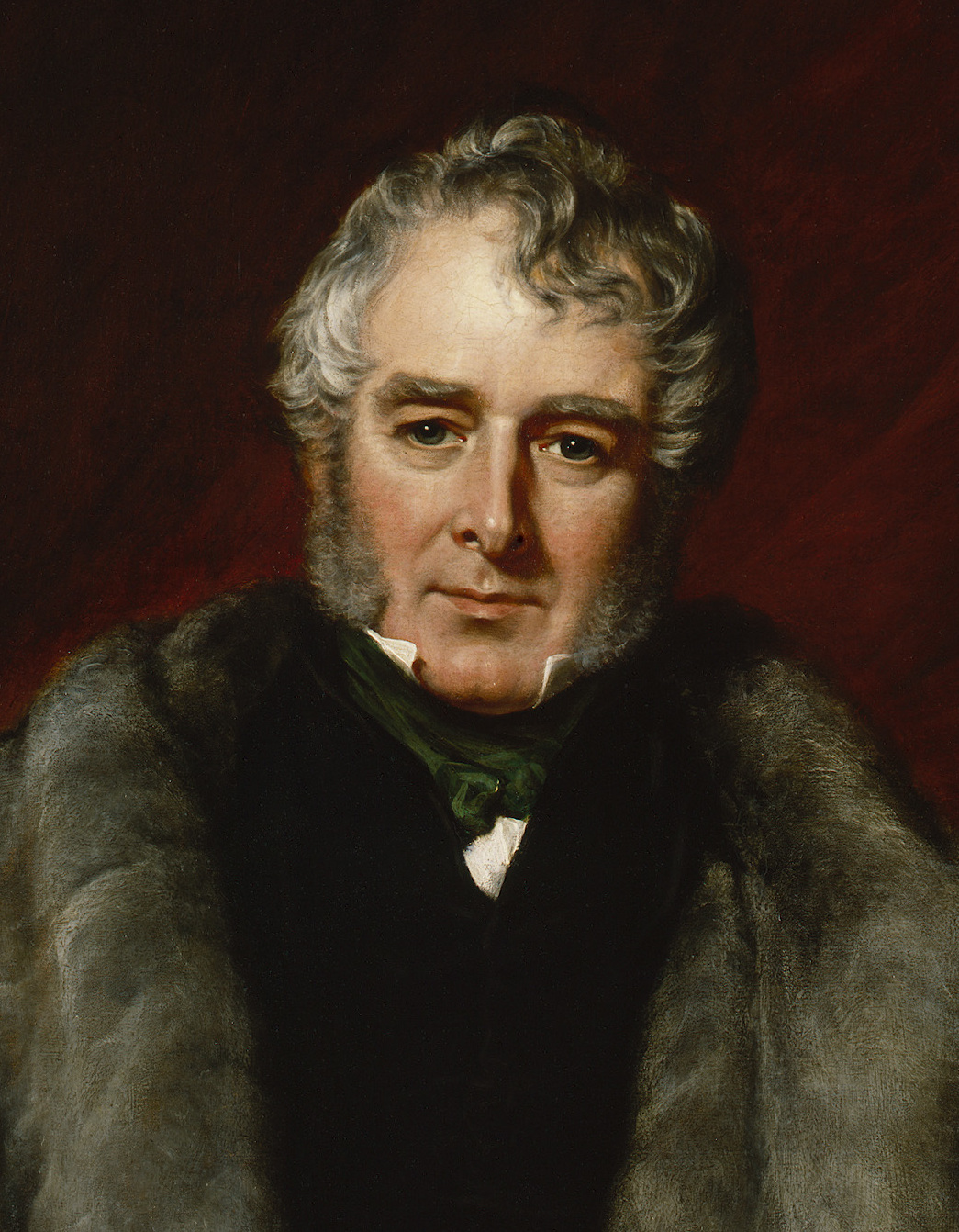“…the possession of great power necessarily implies great responsibility.”
Speech https://api.parliament.uk/historic-hansard/commons/1817/jun/27/habeas-corpus-suspension-bill#column_1227 in the House of Commons (27 June 1817)
William Lamb, 2. Viscount Melbourne, 2. Baron Melbourne of Kilmore, 2. Baron Melbourne of Melbourne war ein britischer Adliger und Politiker. Er gilt als Mentor Königin Victorias. Nach ihm wurde die Metropole Melbourne benannt .
William Lamb war der Sohn von Peniston Lamb , der 1781 zum Viscount Melbourne erhoben wurde, und dessen Frau Elizabeth Millbanke. Da seine Mutter viele Affären hatte, ist es nur eine Vermutung, dass George Wyndham, 3. Earl of Egremont sein biologischer Vater war. Er war das älteste von insgesamt fünf Kindern, seine Schwester Emily heiratete 1839 Lord Palmerston.
Von 1806 bis 1812 und von 1816 bis zum Tod seines Vaters 1828, dessen Titel Viscount Melbourne er dann erbte, war Melbourne für die Wahlkreise Leominster, Haddington, Portalington, Peterborough, Hertfordshire und Newport Abgeordneter im House of Commons. Seit 1827 war er Mitglied des Privy Council. Von 1827 bis 1828 war er Chief Secretary for Ireland, von 1830 bis 1834 war er britischer Innenminister . 1834 und von 1835 bis 1841 war er Lord High Treasurer und damit Premierminister.
Seine Frau war die Romanautorin Caroline Lamb. Das einzige Kind dieser Ehe, der 1807 geborene Sohn George Augustus Frederick Lamb, starb bereits 1836. Seine Adelstitel erbte sein Bruder Frederick Lamb.

“…the possession of great power necessarily implies great responsibility.”
Speech https://api.parliament.uk/historic-hansard/commons/1817/jun/27/habeas-corpus-suspension-bill#column_1227 in the House of Commons (27 June 1817)
Letter to Lord Holland (10 December 1815), quoted in Philip Ziegler, Melbourne. A Biography of William Lamb, 2nd Viscount Melbourne (London: Collins, 1976), p. 70
W. M. Torrens Memoirs of William Lamb, Second Viscount Melbourne (1890), p. 234
Attributed
“I wish I were as cocksure of anything as Tom Macaulay is of everything.”
Lloyd C. Sanders (ed.), Lord Melbourne's Papers (London: Longmans, Green, and Co., 1889), p. xii
Attributed
E. Jane Whately (ed.), Life and Correspondence of Richard Whately, D.D. Late Archbishop of Dublin. Volume II (London: Longmans, Green, and Co., 1866), pp. 451-452
Attributed
Speech http://hansard.millbanksystems.com/lords/1839/mar/14/corn-laws in the House of Lords (14 March 1839) in favour of the Corn Laws.
Speech https://api.parliament.uk/historic-hansard/lords/1839/may/14/ministerial-explanations#column_1015 in the House of Lords (14 May 1839) during the Bedchamber Crisis